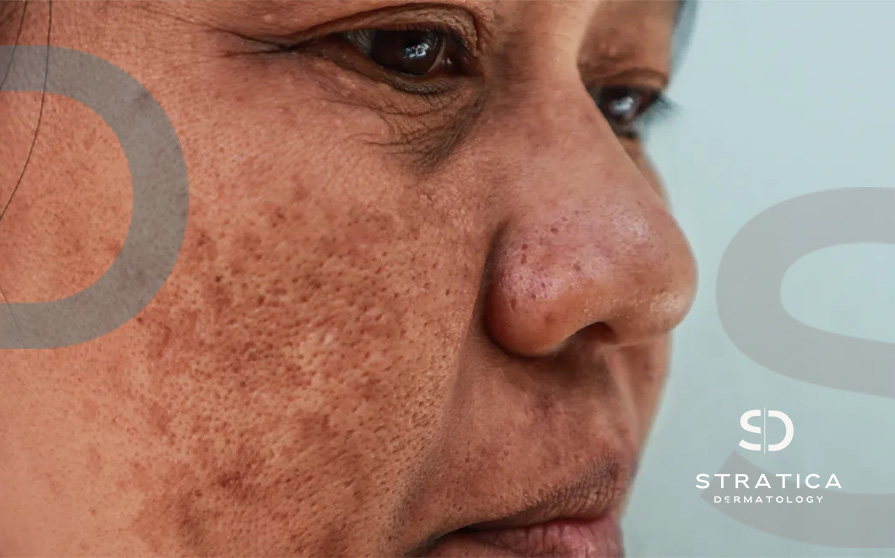What is Melasma?
Melasma, also called ‘chloasma’ and ‘pregnancy mask’, is a common skin condition of adults in which brown or greyish patches of pigmentation (colour) develop, usually on the face.
The name comes from melas, the Greek word for black, or cholas, from the word green-ish. It is more common in women, particularly during pregnancy (when up to 50% of women may be affected). Sometimes men may also be affected. Melasma is more common in people of colour and those who tan very quickly but can occur to anyone.
Melasma usually becomes more noticeable in the summer and improves during the winter months. It is not an infection; therefore, it is not contagious, and it is not due to an allergy. It is not cancerous and will not develop into skin cancer.
Can melasma be cured?
No, at present there is no cure for melasma, but there are several treatment options that may improve the appearance. If melasma occurs during pregnancy, it may go away a few months after delivery and treatment may not be necessary – though it may come back during another pregnancy.
Hydroquinone and retinoid creams should be avoided in pregnancy as they could harm the foetus. Even if it is treated, melasma often returns after stopping the treatments.
How can melasma be treated?
Melasma treatments fall into the following categories and can be used together:
- Avoiding known triggers, such as birth control pills and hormone therapy.
- Avoiding the sun and using sun-blocking creams.
- Skin lightening creams.
- Procedures such as chemical peels, microneedling and laser therapy.
- Skin camouflage.

